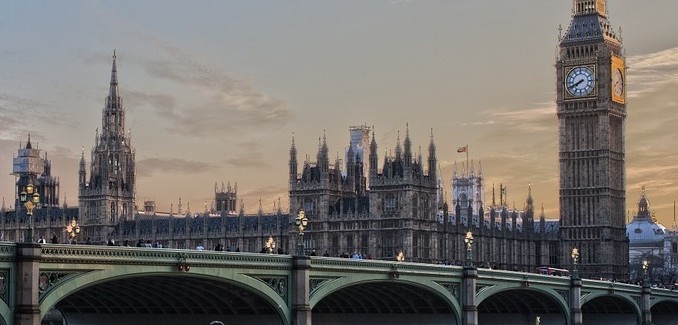The British government has launched a probe into whether the Palestinian Authority is misusing aid money to pay salaries to convicted terrorists and incite violence against Israel, The Jewish Chronicle reported on Thursday.
Secretary of State for International Development Justine Greening is in charge of the investigation. Findings are expected by the fall.
“The Department for International Development is already undertaking a review of its programme in the Occupied Palestinian Territories as part of its Bilateral Aid Review, to consider how it can best support progress towards a negotiated two-state solution,” a spokesman for the department said.
Pro-Israel politicians from both major parties consulted with Greening about the probe.
“We don’t want to see money cut to people living under the PA but it would be much more sensible to start moving funding to something that encourages the peace process, that makes the possibility of a two-state solution more likely,” said Sir Eric Pickles, a former cabinet minister and chairman of Conservatives for Israel. He specifically suggested directing more funding to the Israeli NGO Save a Child’s Heart, which treats children from around the world with heart problems. More than half of the 4,000 children treated by SACH live in the West Bank and Gaza.
Pickles said that Greening seemed “receptive” to the idea of spending “more on projects that are committed to peace, and less on institutions.”
Joan Ryan, chair of Labour Friends of Israel, echoed the idea of funding organizations like SACH, but faulted the British government for not carrying out an independent investigation into the question of the PA’s misuse of aid money. “The Palestinian Authority’s deplorable record on incitement and its continuing involvement in the payment of salaries to convicted terrorists must call into question whether it is the best recipient of aid which is supposed to further Britain’s goal of a two-state solution,” said Ryan. She also criticized the amount of foreign aid designated for promoting co-existence as “pitiable.”
The subject of Palestinian Authority payments to terrorist came to the fore in Britain this past March after The Mail on Sunday published an expose showing that the PA is paying generous salaries to a number of convicted Palestinian terrorists, despite claims to the contrary.
Ahmad Musa, who admitted to shooting two Israelis dead, told the Mail that he receives a monthly stipend of £605 (over $850). Musa was jailed for life for his crimes, but was freed after five years in an Israeli effort to restart peace talks with the PA.
Amjad and Hakim Awad, two cousins who in 2011 massacred five members of the Fogel family — parents Ehud and Ruth Fogel, 11 year-old Yoav, four year-old Elad, and three month-old Hadas — have been also been paid. Amjad alone may have received more than £16,000 (nearly $23,000), according to estimates. (In 2012, PA television praised the cousins as “heroes.”)
Another terrorist on the payroll is veteran Hamas bomb-maker Abdallah Barghouti. Barghouti is serving 67 life sentences in an Israeli jail over his role in numerous bombings, including at the Hebrew University cafeteria in 2002, the Sbarro restaurant in Jerusalem in 2001, and a Rishon Lezion nightclub bombing in 2002, which killed 66 people. He is believed to have received £106,000 (over $150,000) for his efforts.
When the Mail asked the UK’s Department For International Development about the payments, the department defended them as “social welfare” for the families of prisoners, but denied that any British aid was involved. The department also claimed that the PA stopped paying the stipends in 2014, and that the money is now provided by the Palestinian Liberation Organization. This assurance conflicts with accounts given to the Mail by former Palestinian prisoners and their families, as well as official PA statements.
The Mail report and other similar ones, including one on Israel Radio, have been based on research done by Palestinian Media Watch, which has been documenting how the PA incentivizes terror since 2011.
[Photo: mendhak / Flickr ]




